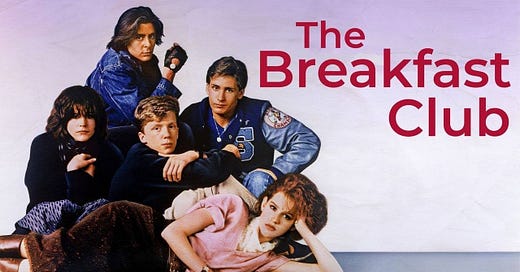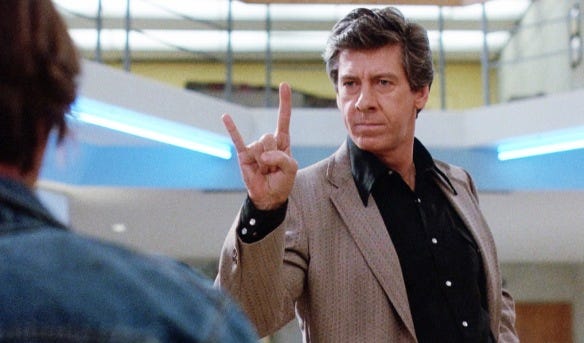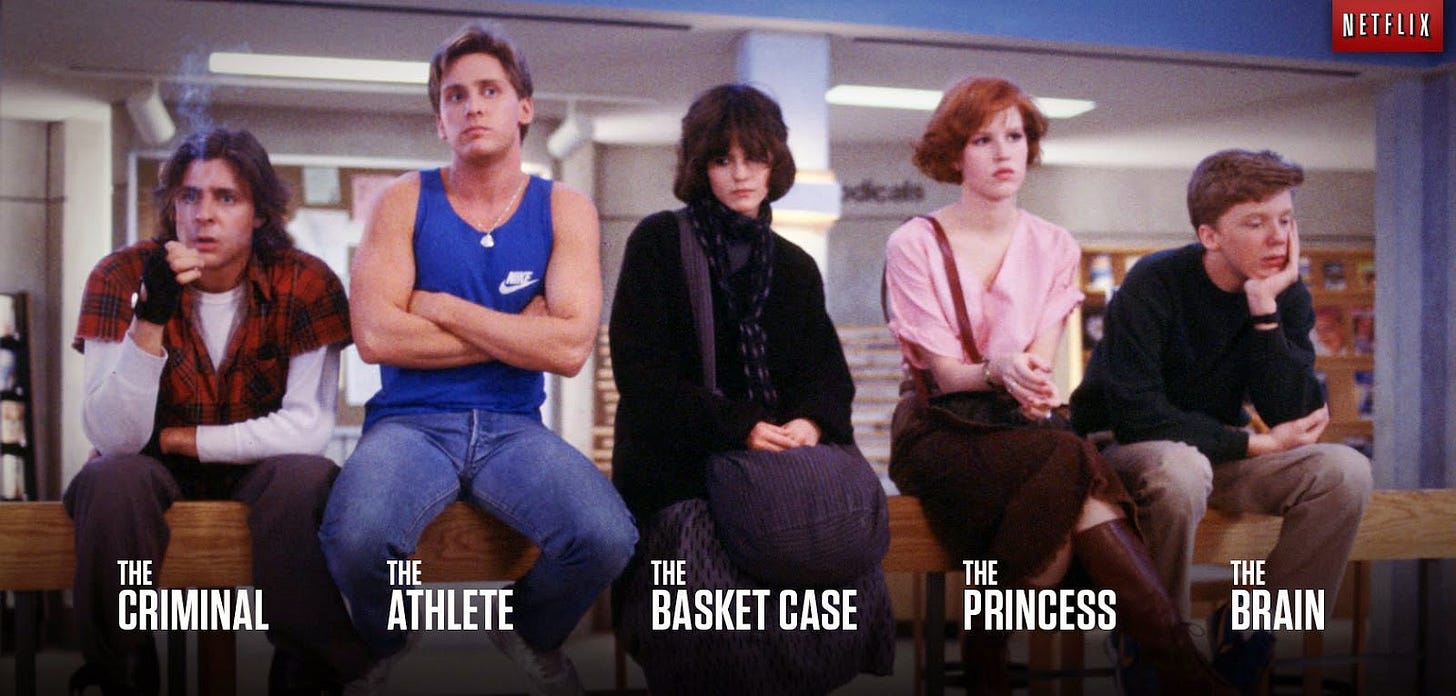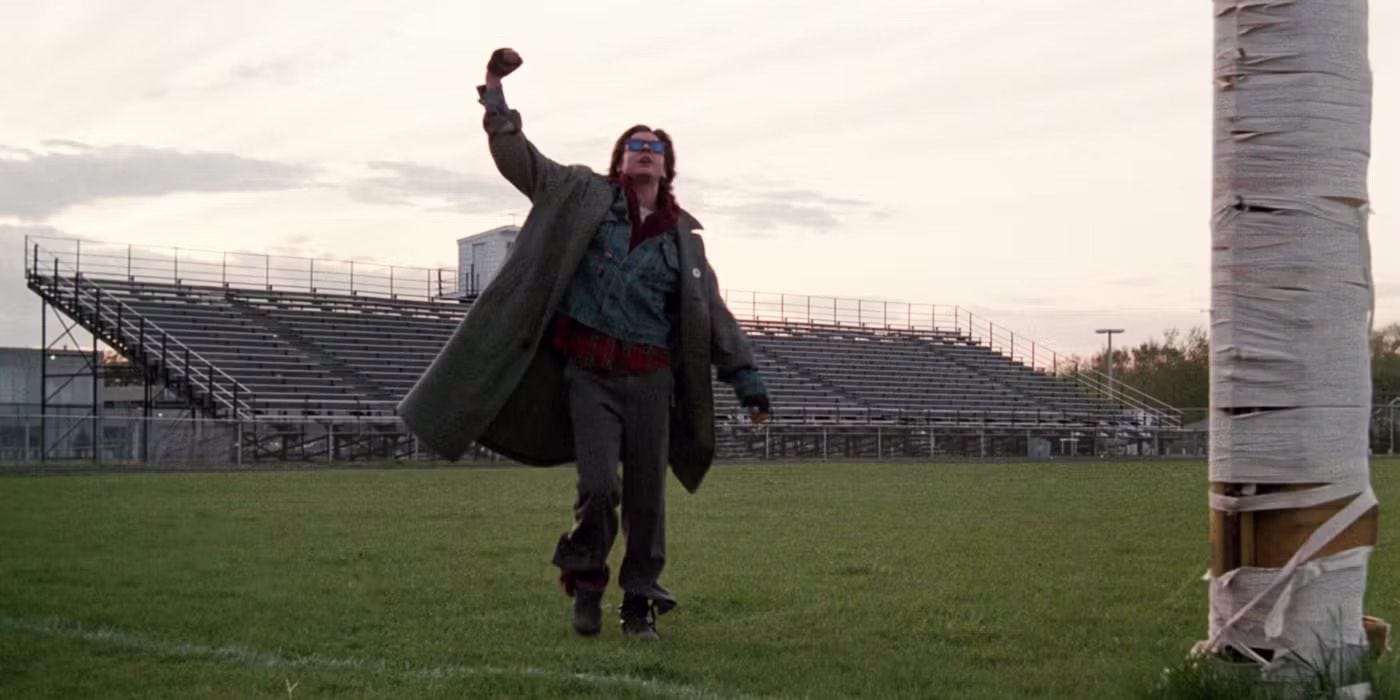Series Introduction: ‘Before The Leave for College’ highlights those essential movies children should view prior to leaving the home. These are films that often tap into something deep within our humanity; making them a cultural artifact parents are encouraged to highlight. Some of these might not be considered ‘classics’ but they remain evergreen for a variety of reasons. As parents, we must accept the fact that we’ll be unable to show our children every movie we want them to see, but this series encourages those that should be at the top of the list.
Growing up, my church would take our youth group to an event called ‘Summer Jam’. Many of those events took place at Western Colorado University in Gunnison, Colorado. Those summers were absolutely incredible and played a significant role in my faith.
I can vividly remember one of our speakers referencing, The Breakfast Club, in one of his talks and the impact it had on his high school. He gave testimony to the fact that this movie really helped break down dividing walls between cliques that existed in his school.
I was 5 years-old when this movie came out, so I cannot give any credence to the impact this movie may or may not have had during that time. What I can say is that I watched it a decade later when I was in high school, and then watched it with my oldest child almost four decades after its release. That fact alone, says something about the qualities contained in this film. It possesses truths that continue to span generations.
Notable Quotes:
Andrew Clark: Speak for yourself.
John Bender: Do you think I'd speak for you? I don't even know your language.
John Bender: [pointing to Claire's lunch] What's that?
Claire Standish: Sushi.
John Bender: Sushi?
Claire Standish: Rice, raw fish, and seaweed.
John Bender: …you're going to eat that?
Claire Standish: Can I eat?
John Bender: I don't know. Give it a try.
John Bender: Does Barry Manilow know that you raid his wardrobe?
Richard Vernon: [to Bender, warningly] Don't mess with the bull, young man, you'll get the horns.
Why It’s Essential:
Growing Up is Hard
The first time I saw The Breakfast Club, I remember liking it but also thinking that it had been hyped-up a bit too much. Then I grew up. Molly Ringwald, who portrays Clair in the film, talks about John Hughes being such a talented writer and director, who accurately captures the pain of growing up in most of his films. I think the lack of resonance this movie had with me on my initial viewing was due to a lack of life experience. This story accurately captures what we know to be true about the teenage years - they aren’t easy.
Adults Can Be Impatient
Although many might assert that Richard Vernon’s character is a bit heavy-handed and over-the-top, adults would do well to see themselves in him at times. Without a doubt, some of Vernon’s harshness is justified by the teenager’s rebellion, so we should empathize with him. At the same time, I think of how many times I’ve been cold and impatient with my own children, as well as other teens, and that impatience is due to my lack of empathy for where they are in the maturation process. While adults must lead, discipline and offer correction to children, we also must be reminded that kids are carrying a lot in their hearts and minds. They are still in process, and so are we.
We All Put People in Boxes
“A brain…an athlete…a basket case…a princess…and a criminal…” As mentioned, this movie exposed the ways in which our hearts easily judge others and assume we know who they are. We sort people into neat categories and, by doing so, we diminish their humanity. The Breakfast Club helped to illustrate how complex people are. The movie subverts the viewer’s judgmental hearts and teaches us to see people as living stories; with much more going on beneath the surface. As a result, we learn that an aspect of being human means that we transcend easily-defined categories.
Searching For Identity
As most of humanity enters the teenage years, we begin to possess varying levels of self-awareness. Without a doubt, this occurs prior to adolescence and continues throughout our life, but deeper thoughts often surface in high school. Who am I? Who do I want to be? Where am I going? What’s the point of life? I believe it’s questions like these that lie at the foundation of, The Breakfast Club, and have made it a film that continues to resonate. Do we want to be the jock? The stoner? The popular girl? The loner? The nerd? The movie resonates with the aspirational characteristics of our personality, but also gives us a grid for the process of identity formation. Truth be told, there’s a little bit of all of these characters that should resonate with each of us.
Unlikely Friendships
Perhaps friendship is the biggest theme of the movie. Not only do these five classmates become friends by the movie’s end, most of them started off as enemies. If not enemies, they were, for the most part, a little apathetic towards each other. However, the audience is never allowed to see what their interactions with one another were like that following Monday. Did they acknowledge each other? Did some of the romances continue? Did that Saturday detention galvanize this group in a way that broke down barriers at Shermer High School? I like to think so.
Loss of Innocence
The melodrama of some of the scenes may be a bit laughable at times, but keep in mind that the characters are teenagers. I think it’s not only appropriate but an accurate portrayal of teens processing the difficulties of life. This isn’t to say that there aren’t some weighty matters these characters are dealing with; abuse and bullying are just two examples. Whatever the level of affliction, high school begins to peel away the naiveté of childhood, and a film like this prepares us for the brokenness of a world like the one we currently inhabit.
As I look back on my own high school years, I see them with fondness and gratitude. Sure, the acne and insecurities weren’t fun and, while most of the acne is now gone, new insecurities have come to the surface. However, the furnace of high school removed some of the dross of who I thought I was and who I would be; which I’m grateful for.
Hopefully you feel similarly about your own high school experience. Most of us would never want to relive those days, which is why it’s nice to be able to watch a movie like, The Breakfast Club. We can laugh and cry at someone else’s trauma for a while.








This is an excellent article. Thank you for reminding readers (a) of specific,
soul-searching questions that teens ask and (b) that teen years comprise a long runway where they process them. TBC allows teen viewers to process some of their own questions and judgments through the experiences of others. I still enjoy the movie, and I’m old!
You give some pretty compelling reasons to share this movie with older children, which gives me lots to think about. Thank you.